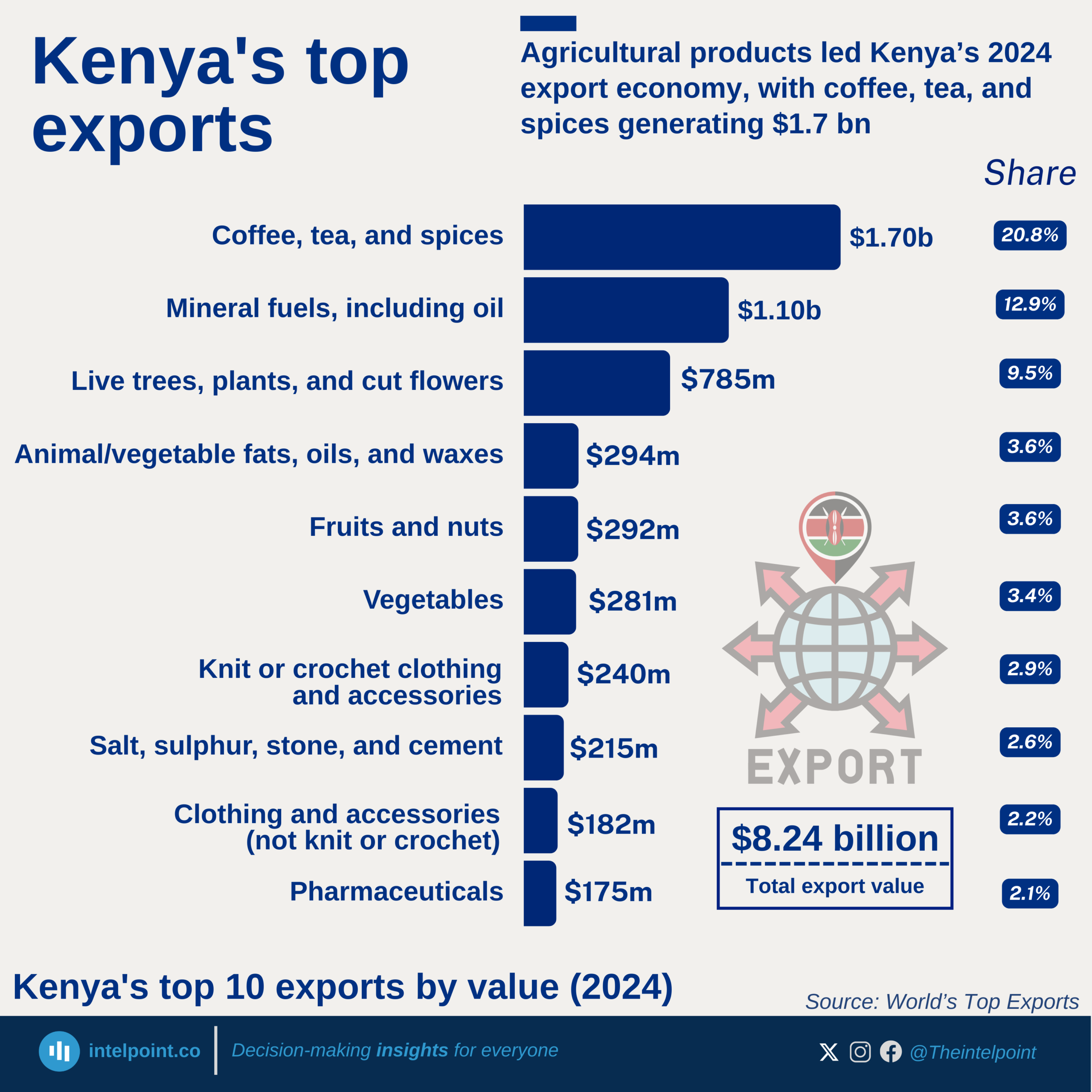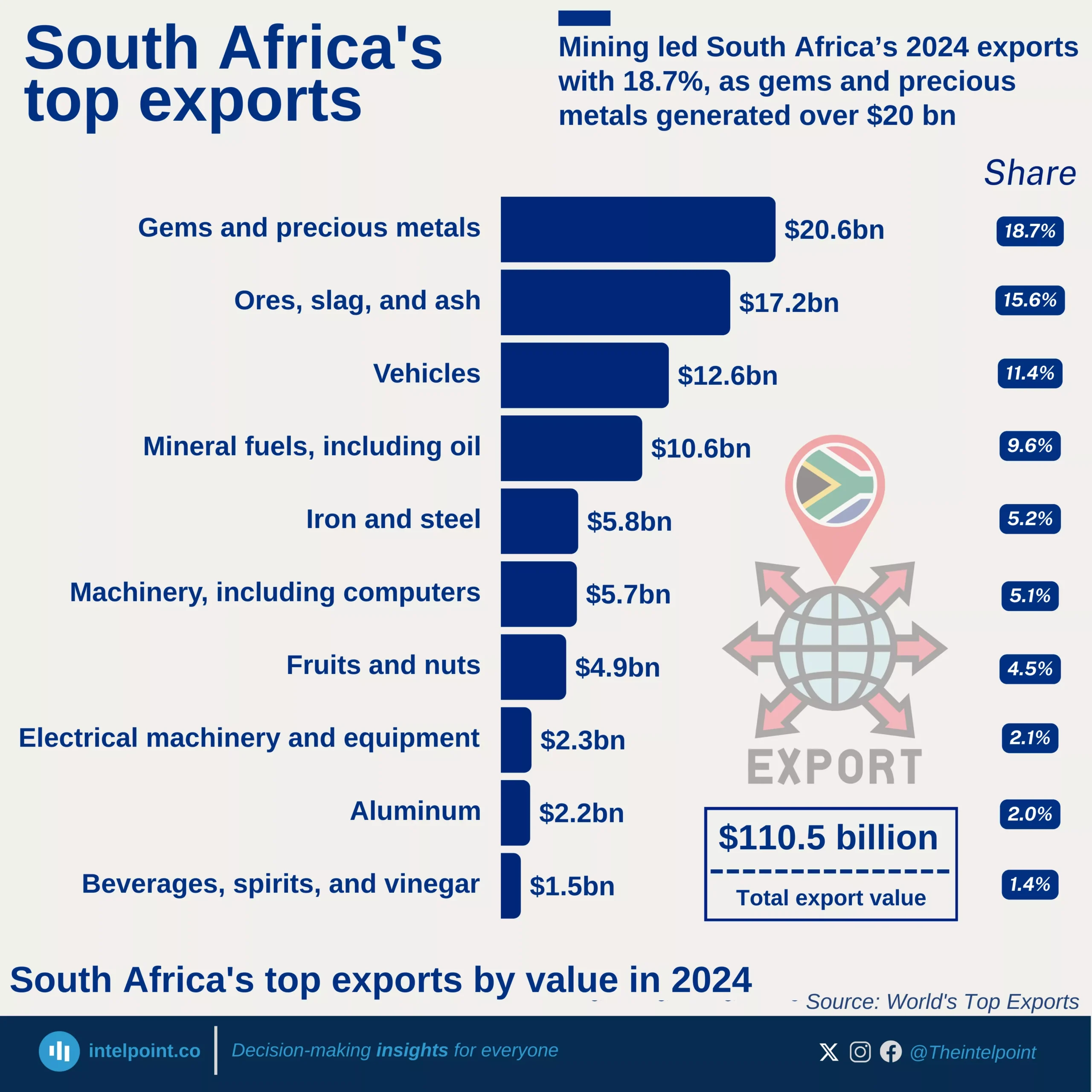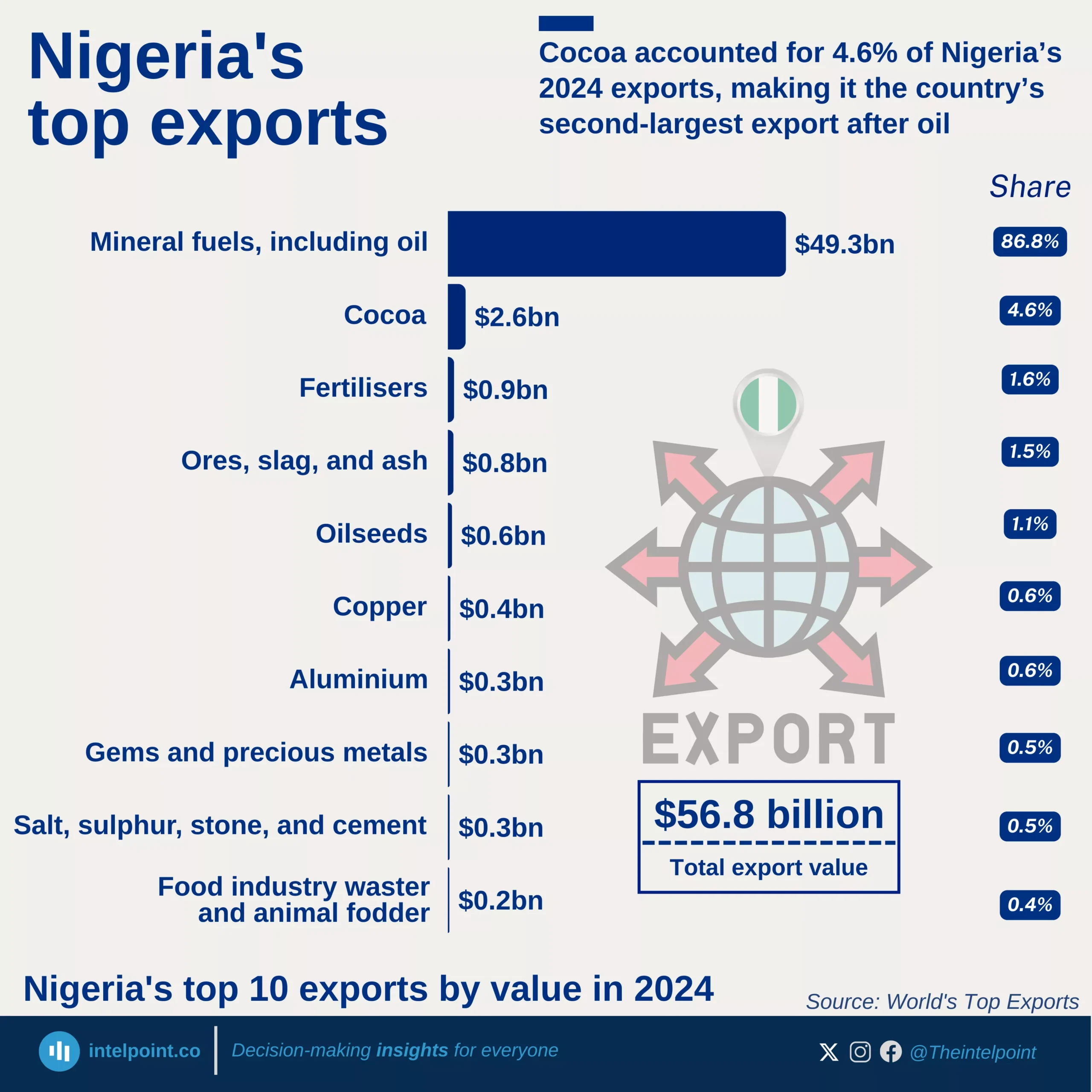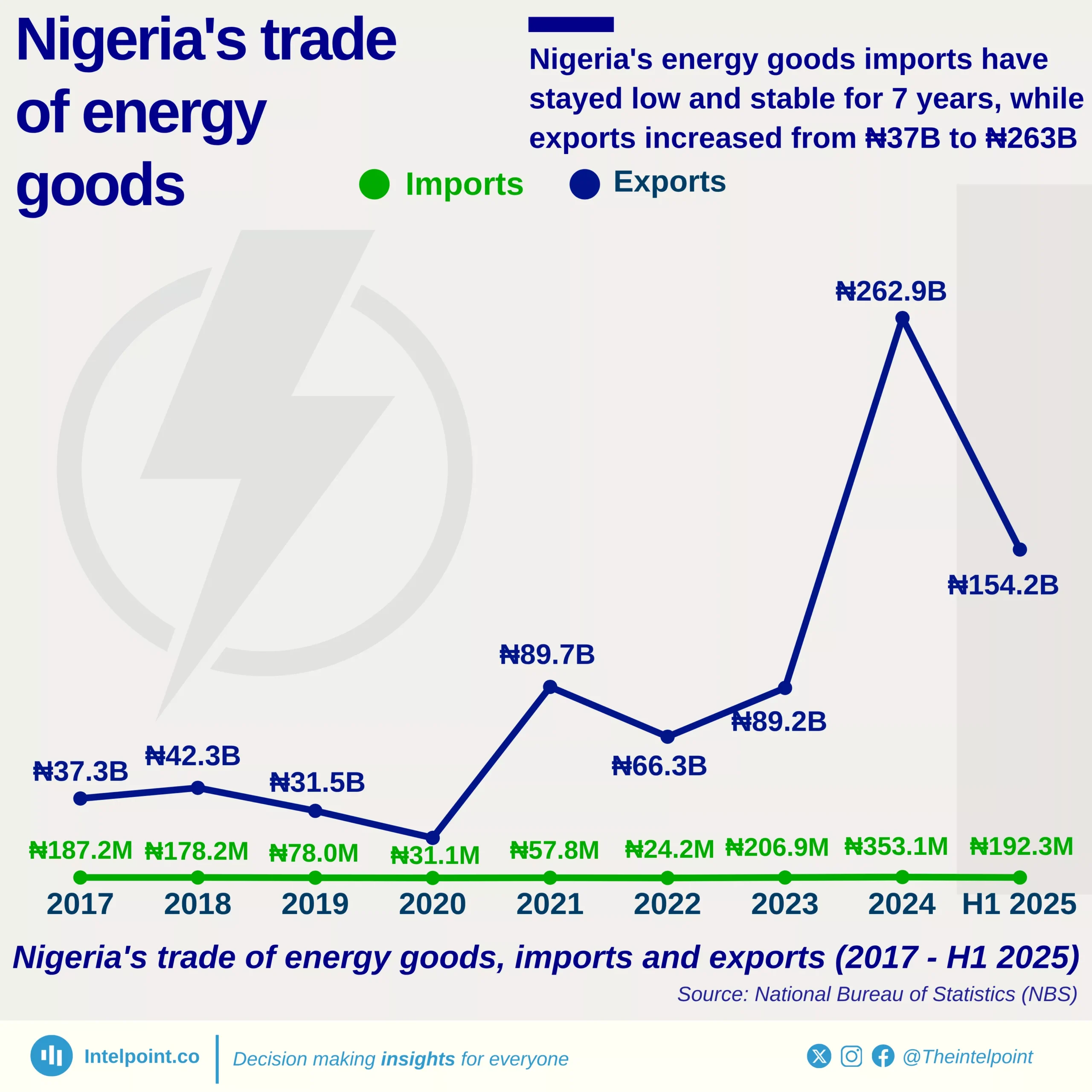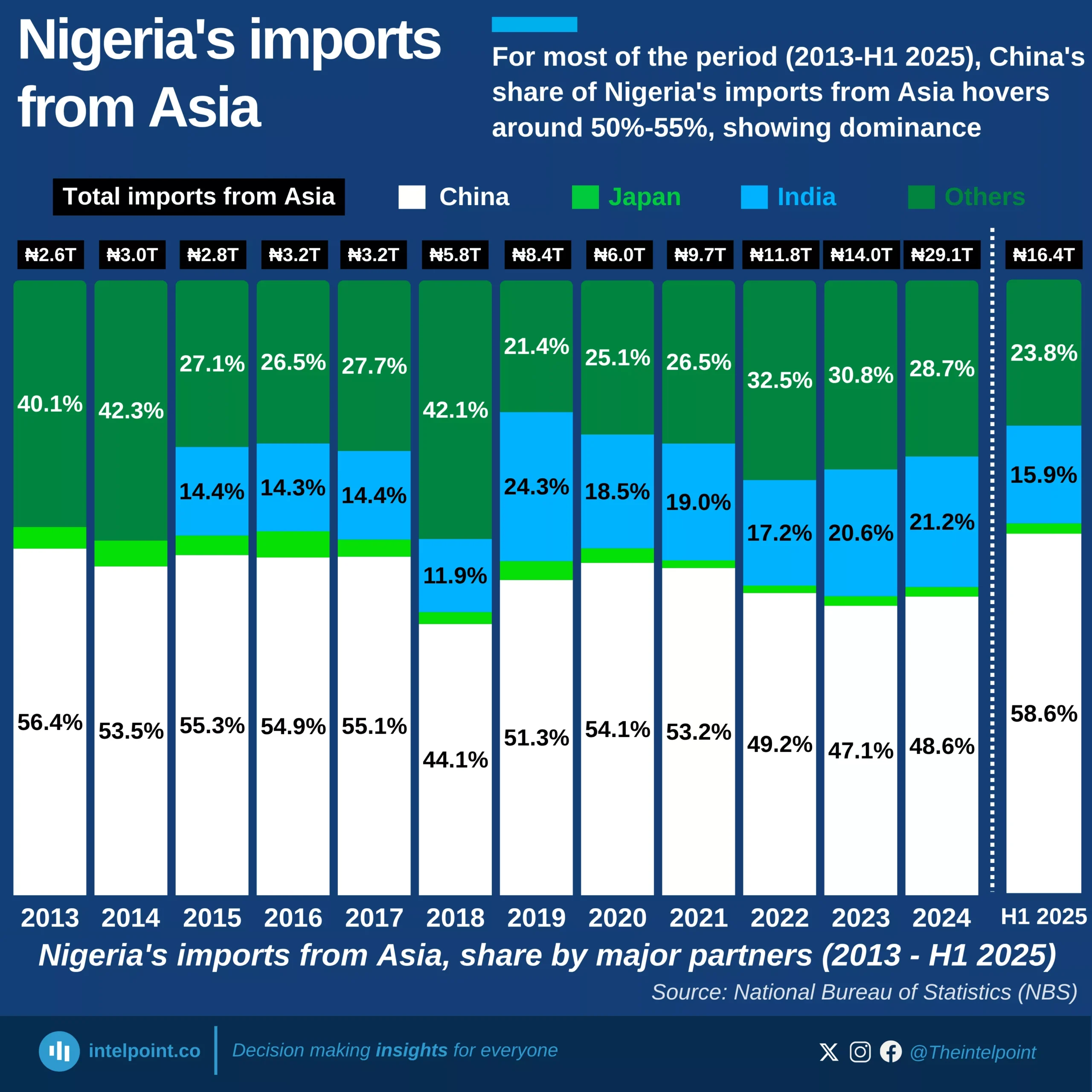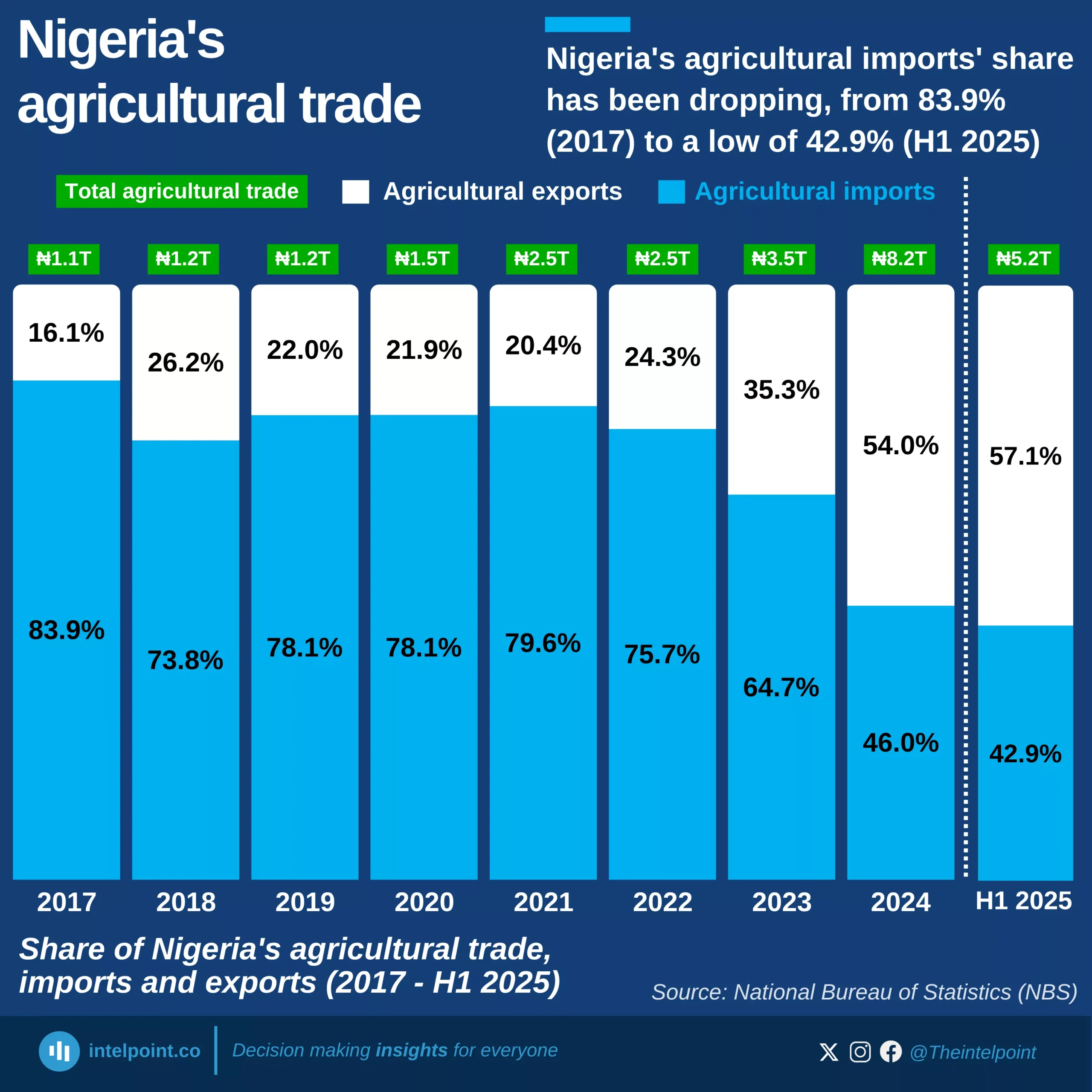Key Takeaways:
In 2024, agricultural imports to the United States from Nigeria totaled $114.7 million. Oilseed meal and cake was the largest import, accounting for 26% of the total value, followed by cocoa beans (19%) and tea (14%).
Spices ($7.9 million) and seafood items ($6.3 million) together accounted for 12% of Nigerian agricultural exports to the United States.
